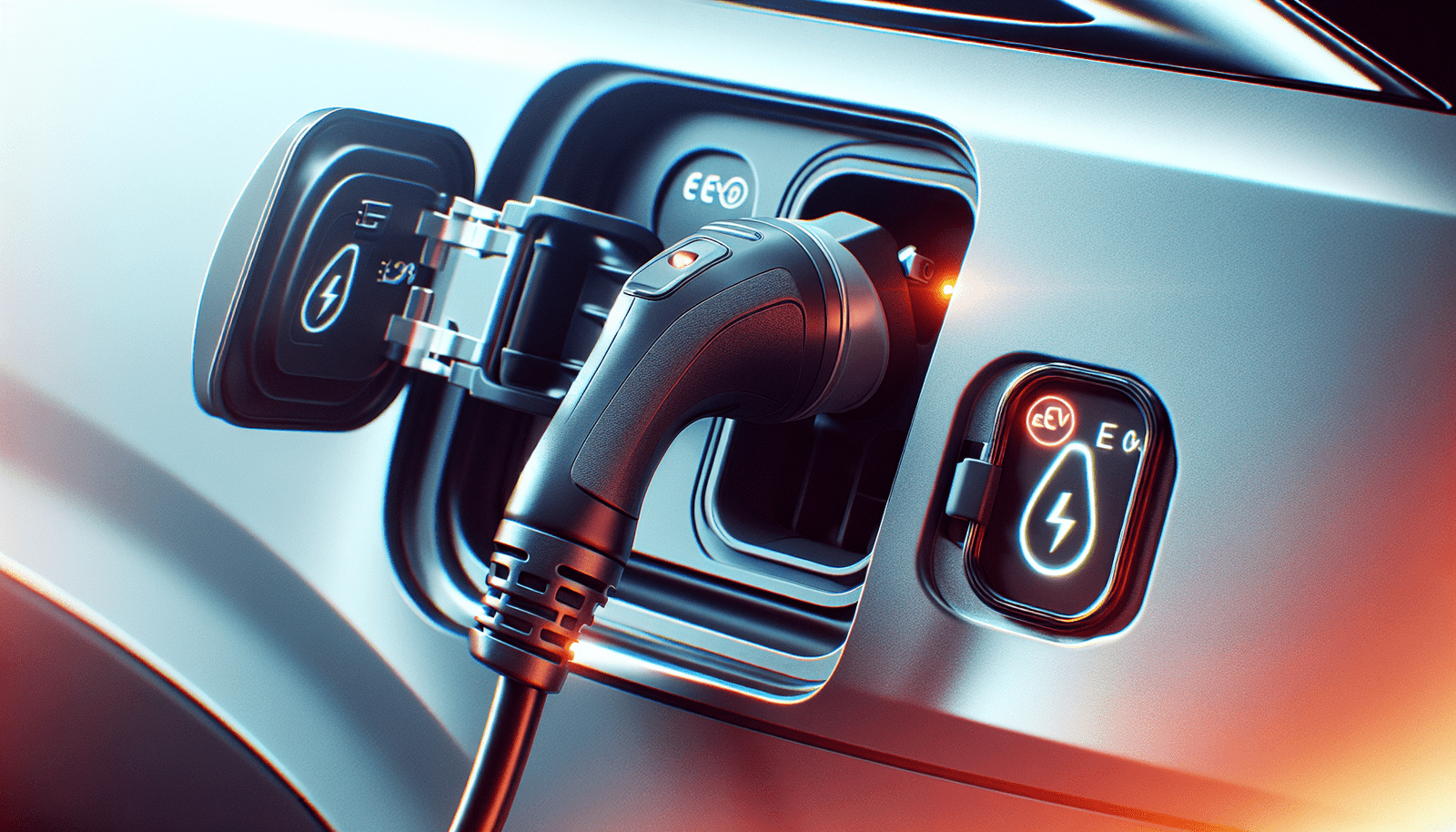Are you tired of waiting in long lines to charge your electric vehicle? Are you searching for a solution that can manage and optimize the charging process for EV owners? Look no further than EV Charger Queue Management Systems. These innovative systems are designed to address the common challenges faced by electric vehicle users, such as long wait times and inefficient charging processes. In this article, we will explore the benefits and features of EV charger queue management systems and answer some frequently asked questions that will help you make an informed decision. So, get ready to enhance your EV charging experience and say goodbye to long queues. It’s time to take control of your charging needs.
Understanding EV Charger Queue Management Systems
What are EV charger queue management systems?
EV charger queue management systems are advanced software solutions designed to effectively manage and optimize the charging process for electric vehicles in busy charging stations. These systems help organize and regulate the queue of vehicles waiting to charge, ensuring a smooth and efficient experience for EV owners.
How do these systems function?
EV charger queue management systems typically utilize a combination of hardware, software, and communication technologies to streamline the charging process. They monitor the availability of charging stations, collect data on charging sessions, and provide real-time information to both users and operators. These systems often include features such as automated queueing, real-time monitoring, and integration with mobile apps or other devices.
Benefits of EV charger queue management systems
Implementing EV charger queue management systems offers a range of benefits for both users and charging station operators. Some of these benefits include:
- Minimized wait times: By efficiently managing the charging queue, these systems help reduce wait times for EV owners, ensuring a more convenient charging experience.
- Increased charger utilization: With the ability to optimize the flow of vehicles, these systems maximize the utilization of charging stations, allowing more EVs to charge in a given time period.
- Enhanced operational performance: By providing real-time monitoring and reporting, these systems enable operators to identify and address any issues or inefficiencies in the charging process, improving overall performance.
- Improved user experience: EV charger queue management systems keep users informed about charging status, provide convenient booking and payment options, and ultimately enhance user satisfaction levels.
- Efficient use of resources: By optimizing the charging process, these systems contribute to the efficient use of electricity and other resources, supporting sustainability and green initiatives.
Different types of EV Charger Queue Management Systems
Commercial EV charger queue management systems
Commercial EV charger queue management systems are designed for charging stations located in commercial areas, such as shopping malls, parking lots, and office complexes. These systems are typically more robust and feature-rich, capable of handling high volumes of charging sessions and providing advanced analytics for business insights.
Residential EV charger queue management systems
Residential EV charger queue management systems cater to the needs of EV owners who have chargers installed at their homes. These systems enable homeowners to manage and monitor their charging sessions, schedule charging times, and even share their chargers with others.
Public EV charger queue management systems
Public EV charger queue management systems are designed for charging stations accessible to the general public, such as those found on city streets, in public parking lots, or at rest areas. These systems focus on providing a seamless and user-friendly charging experience for EV owners on the go.
Features of an effective EV Charger Queue Management System
User-friendly interface
An effective EV charger queue management system should have a user-friendly interface that is easy to navigate and understand. The interface should provide clear information about charging station availability, charging status, and queue positions, allowing users to quickly and conveniently access the services they need.
Real-time monitoring
Real-time monitoring is a crucial feature of EV charger queue management systems. This feature allows operators to track the status of each charging session, monitor the queue of waiting vehicles, and identify any issues or inefficiencies in the charging process. Users can also benefit from real-time updates on their charging status.
Integration with mobile apps or other devices
Integration with mobile apps or other devices is increasingly important in EV charger queue management systems. This feature allows users to easily access and control charging sessions through their smartphones, receive notifications and updates, and even make reservations or payments remotely.
Automated queueing process
Automation of the queueing process is a key function of an effective EV charger queue management system. By automatically assigning charging positions to waiting vehicles based on availability and priority, these systems ensure fair and efficient utilization of charging stations.
Robust reporting and analytics
A comprehensive EV charger queue management system should provide robust reporting and analytics capabilities. Operators can generate detailed reports on charging sessions, queue statistics, and overall performance, allowing them to identify trends, optimize resources, and make data-driven decisions for future improvements.
Choosing the right EV Charger Queue Management System
Consideration of specific needs
When choosing an EV charger queue management system, it is crucial to consider your specific needs and requirements. Factors such as the type and size of charging station, expected traffic volume, and available budget should be taken into account to ensure the selected system aligns with your goals.
Evaluation of software reliability
The reliability and stability of the software powering the EV charger queue management system should be thoroughly evaluated. Look for systems with a proven track record and positive customer reviews to ensure smooth operation and minimize potential issues.
Comparison of pricing models
Different EV charger queue management systems may have varying pricing models, such as upfront fees, subscription plans, or pay-per-use options. It is essential to compare and evaluate these pricing models to determine which one offers the best value for your investment.
Investigation of customer reviews and testimonials
Customer reviews and testimonials can provide valuable insights into the performance and user experience of a particular EV charger queue management system. Consider researching and reading reviews from existing customers to gain a better understanding of the system’s strengths and weaknesses.
Exploration of customer support options
Reliable customer support is crucial for resolving any issues or concerns that may arise during the implementation and operation of an EV charger queue management system. Investigate the available customer support options, such as phone support, online chat, or email, to ensure prompt assistance when needed.
How EV Charger Queue Management Systems enhance user experience
Minimizing wait times
One of the primary ways EV charger queue management systems enhance user experience is by minimizing wait times. By efficiently managing the charging queue, these systems ensure that EV owners spend less time waiting for their turn to charge, allowing them to conveniently continue with their day while their vehicle charges.
Informing users about charging status
EV charger queue management systems keep users informed about their charging status. Users can receive real-time notifications or check the system’s interface to know when their charging session is about to begin, when it is in progress, and when it is completed. This information helps users plan their time effectively and reduces uncertainty.
Offering convenient booking and payment options
Many EV charger queue management systems offer convenient booking and payment options. Users can reserve their charging slot in advance through a mobile app or website, ensuring that they have a guaranteed spot when they arrive. Additionally, these systems often provide various payment methods, allowing users to make transactions easily and securely.
Boosting user satisfaction levels
By providing a seamless and user-friendly charging experience, EV charger queue management systems significantly boost user satisfaction levels. When EV owners can efficiently charge their vehicles without any hassle, they are more likely to have a positive perception of the charging station and return in the future. This leads to increased customer loyalty and positive word-of-mouth recommendations.
Impact of EV Charger Queue Management Systems on efficiency
Optimization of queue flow
EV charger queue management systems optimize the flow of vehicles in the charging queue, resulting in increased efficiency. By automatically assigning charging positions based on availability and priority, these systems ensure that vehicles are charged in the most efficient order, minimizing idle time and eliminating bottlenecks.
Reduction in idle time
Idle time, when vehicles are waiting in the charging queue without being actively charging, can be a significant issue in busy charging stations. EV charger queue management systems reduce idle time by streamlining the charging process and optimizing resource allocation, resulting in a more efficient use of both charging stations and vehicles’ time.
Enhancement of operational performance
EV charger queue management systems enhance the operational performance of charging stations by providing real-time monitoring and reporting. With access to detailed data on charging sessions, queue statistics, and other performance metrics, charging station operators can identify areas for improvement, optimize resource allocation, and make informed decisions to enhance overall efficiency.
Boost in charger utilization rates
By maximizing the utilization of charging stations, EV charger queue management systems contribute to a boost in charger utilization rates. By efficiently managing the queue and ensuring that each charging station is utilized to its full potential, more vehicles can be charged in a given time period, increasing the overall capacity and efficiency of the charging station.
Role of technology and innovation in EV Charger Queue Management Systems
Influence of artificial intelligence
Artificial intelligence (AI) plays a significant role in enhancing the capabilities of EV charger queue management systems. AI algorithms can analyze historical data, predict demand patterns, and optimize the allocation of charging resources, resulting in better queue management and improved efficiency.
Benefits of Internet of Things (IoT) integration
The integration of IoT devices in EV charger queue management systems enables seamless communication and data exchange between different components of the charging infrastructure. IoT sensors can provide real-time updates on the status of charging stations, monitor energy consumption, and facilitate remote control and management of the charging process.
Relevance of cloud technology
Cloud technology is crucial for the efficient functioning of EV charger queue management systems. By storing and processing data on cloud servers, these systems can handle high volumes of information, provide real-time updates, and enable remote access to system interfaces. Cloud technology also ensures scalability, allowing the system to adapt to changing demands and accommodate future growth.
Potential of blockchain technology for secure transactions
Blockchain technology has the potential to enhance the security and transparency of transactions in EV charger queue management systems. By utilizing distributed ledger technology, these systems can facilitate secure and tamper-proof transactions, ensuring fair and transparent billing, payment, and utilization of charging resources.
Challenges in implementing EV Charger Queue Management Systems
Technical difficulties
Implementing EV charger queue management systems can present various technical challenges. These challenges may include integrating the system with existing charging infrastructure, ensuring interoperability between different hardware and software components, and managing data privacy and security.
Provision of adequate infrastructure
To fully leverage the benefits of EV charger queue management systems, it is essential to have adequate charging infrastructure in place. This includes having a sufficient number of charging stations, ensuring they are strategically located, and providing the necessary electrical capacity to support high volumes of charging sessions.
Regulatory constraints
The implementation of EV charger queue management systems may be subject to regulatory constraints and requirements. These could include standards for interoperability, certification processes, or compliance with data protection and privacy regulations. It is crucial to navigate these regulatory challenges to ensure successful implementation and operation of the system.
Consumer adoption and ease of use
For EV charger queue management systems to be effective, they must be widely adopted by EV owners and easily accessible to all users. User-friendly interfaces and seamless integration with mobile apps or other devices are essential to encourage user adoption and ensure a positive user experience.
Future trends in EV Charger Queue Management Systems
Introduction of smart grid technology
The introduction of smart grid technology in EV charger queue management systems will enable more efficient management of charging resources. Smart grids can dynamically adjust charging rates based on grid load, renewable energy availability, and other factors, further optimizing the charging process and supporting the integration of more EVs into the grid.
Development of wireless charging
Wireless charging technology is rapidly advancing and is likely to play a significant role in the future of EV charging. EV charger queue management systems will need to adapt to support wireless charging infrastructure, including features such as automated wireless charging spot assignment and real-time status monitoring.
Integration of renewable energy sources
As the adoption of renewable energy sources continues to grow, EV charger queue management systems will increasingly integrate with these sustainable energy solutions. This integration will enable charging stations to leverage renewable energy generation for charging operations, contributing to the overall reduction of carbon emissions and supporting a more sustainable charging infrastructure.
Growing emphasis on sustainability and green initiatives
There is a growing emphasis on sustainability and green initiatives in the field of EV charging. EV charger queue management systems will need to align with these initiatives by promoting energy efficiency, supporting the use of renewable energy, and enabling optimized utilization of charging resources to minimize environmental impact.
Conclusion: Making the most of your EV Charger Queue Management System
Implementing an EV charger queue management system can greatly enhance the charging experience for both users and charging station operators. By minimizing wait times, informing users about charging status, offering convenient booking and payment options, and boosting overall efficiency, these systems contribute to improved service delivery and customer satisfaction.
To make the most of your EV charger queue management system, it is important to prioritize regular system updates. Keeping the software up to date ensures optimal performance, access to the latest features, and enhanced security.
Additionally, it is crucial to listen to user feedback and continuously improve the system based on their needs and suggestions. Actively engaging with users and addressing their concerns builds trust and loyalty, ultimately leading to a more successful implementation of the EV charger queue management system.
Lastly, staying informed about industry developments and advancements is essential. As technology continues to evolve, new features and functionalities may become available that can further enhance the capabilities of your system. By staying informed, you can leverage these advancements to constantly improve and optimize your EV charger queue management system, providing the best possible service to your users.





